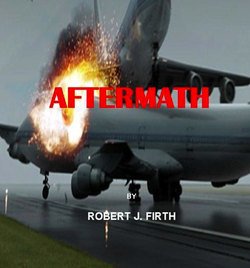Читать книгу Aftermath - Robert J.D. Firth - Страница 8
На сайте Литреса книга снята с продажи.
ОглавлениеCHAPTER 4
“You are professionals trained to deal with three things that can kill you: gravity, combustion, and inertia. Keep them under control, and you'll die in bed.”
- Sailor Davis, long-time TWA ground school instructor
WRONGFUL DEATH AND COMPENSATION
One of the most confusing things about wrongful death compensation is how it is calculated. As you have read, some passengers lives were valued at as much as $600,000 and some as little as $58,000.00 How does anyone figure out what a persons life is worth?
It’s hard enough to handle the fact that you suddenly lost a loved one due to the negligence of another, let alone understand how to calculate wrongful death compensation. These cases definitely need the skill of an experienced personal injury lawyer to navigate the choppy waters surrounding death calculations and how an award is translated to money.
Sadly, we have never developed or invented any better way to compensate anyone for the loss of their loved ones. Certainly, money doesn’t equate to love- or does it? Would you trade any of your loved ones for money? How much is enough for a human life?
Wrongful death claims are unusual. When a person is wrongfully killed, the claims are governed by the various Wrongful Death and Survival statutes. These statutes describe who can sue in a death claim and what damages they may recover.
When a person is wrongfully killed, the person’s estate has a “survival claim.” The estate has the right to seek damages for any medical or funeral expenses that the person incurred as a result of the incident, plus claims for any pain and mental anguish the deceased might have experienced before his or her death.
The statute also allows some family members to make a “wrongful death” claim. Generally, the only people that can make a wrongful death claim are the deceased’s spouse, children and parents. The spouse and children get to ask for damages of pecuniary loss (loss of care, maintenance, support, services and advice that the person would have provided), loss of companionship, mental anguish, and loss of inheritance. Surviving parents may also seek these damages, except the loss of inheritance damages.
Needless to say, it can be extremely confusing and complicated.
Loss of inheritance is based on the lost income of the person killed. Future lost income is usually figured out based on the amount of income a victim would have earned had they not been killed. This may be calculated by taking the deceased’s income when they died and then multiplying it by the years left until retirement (and finding a formula to compensate for increases in income the person would have received) or until their expected death.
As you may have already guessed, retirement ages differ from one person to the next and when a person dies is based on complicated actuarial tables.
An example of how this would work would be a 50-year-old man making $40,000 a year when he was killed and was not banking on retiring for another 15 years. That individual’s income, when he was killed, would be multiplied by the number of years he had left to work. That would be $40,000 x 15 years which would make his future losses of $600,000 (give or take).
In my case, I didn’t start writing until I was 65. Today, I’m 71 and have written five books that have sold several thousand copies. How unfair it would have been to my wife had I been a victim of an accident at age 60 and had the lawyers figure that I was long past my earning years so my dead carcass was worth only $58,000.00. Think about yourself and see if you can figure out how much you’re worth if accidently killed?
The fly in the ointment is accounting for raises the person would have received and reducing the overall value to present day dollars because the law requires awards of future income to be “discounted” to present value. In many cases, one of the biggest fights is the fight among each side’s economists arguing about the way these two calculations should be done.
Something to remember is that wrongful death compensation figures are not always calculated the same way simply because of the presence or absence of various factors may be different in each case. The only way to get a good idea of what compensation may be in a wrongful death case is to discuss the matter with a personal injury lawyer and you had best get a good one. They would be able to outline how the process works and what you could expect to see during the course of the trial.
After Tenerife, the lawyers worked for months making 583 separate calculations- one for each of the dead. Offers were submitted and argued. Attorneys for the relatives and the few survivors spent countless hours before reaching mutually acceptable findings. Including the 61 survivors compensation was eventually paid to 644 individuals. Of course, except for any deductibles, one hundred percent of the monies paid out were from the insurance companies.
